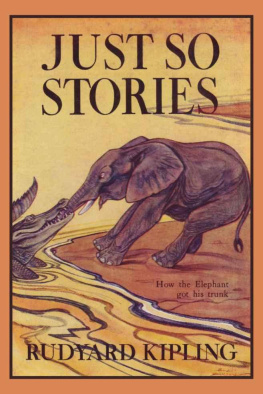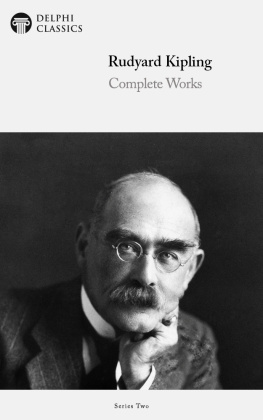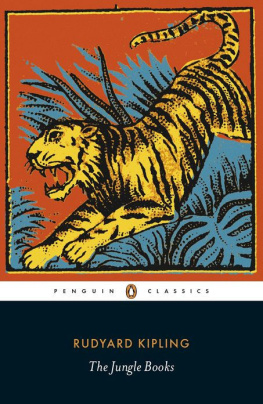Of the beginning of things. Of the Taj and the Globetrotter. The young man from Manchester and certain moral reflections.
Except for those who, under compulsion of a sick certificate, are flying Bombaywards, it is good for every man to see some little of the great Indian Empire and the strange folk who move about it. It is good to escape for a time from the House of Rimmon be it office or cutchery and to go abroad under no more exacting master than personal inclination, and with no more definite plan of travel than has the horse, escaped from pasture, free upon the countryside. The first result of such freedom is extreme bewilderment, and the second reduces the freed to a state of mind which, for his sins, must be the normal portion of the Globetrotter the man who does kingdoms in days and writes books upon them in weeks. And this desperate facility is not as strange as it seems. By the time that an Englishman has come by sea and rail via America, Japan, Singapore, and Ceylon, to India, he can these eyes have seen him do so master in five minutes the intricacies of the Indian Bradshaw, and tell an old resident exactly how and where the trains run. Can we wonder that the intoxication of success in hasty assimilation should make him overbold, and that he should try to grasp but a full account of the insolent Globetrotter must be reserved. He is worthy of a book. Given absolute freedom for a month, the mind, as I have said, fails to take in the situation and, after much debate, contents itself with following in old and well-beaten ways paths that we in India have no time to tread, but must leave to the country cousin who wears his pagri tail-fashion down his back, and says cabman to the driver of the ticca-ghari.
Now, Jeypore from the Anglo-Indian point of view is a station on the Rajputana-Malwa line, on the way to Bombay, where half an hour is allowed for dinner, and where there ought to be more protection from the sun than at present exists. Some few, more learned than the rest, know that garnets come from Jeypore, and here the limits of our wisdom are set. We do not, to quote the Calcutta shopkeeper, come out for the good of our ealth, and what touring we accomplish is for the most part off the line of rail.
For these reasons, and because he wished to study our winter birds of passage, one of the few thousand Englishmen in India on a date and in a place which have no concern with the story, sacrificed all his self-respect and became at enormous personal inconvenience a Globetrotter going to Jeypore, and leaving behind him for a little while all that old and well-known life in which Commissioners and Deputy-Commissioners, Governors and Lieutenant-Governors, Aides-de-camp, Colonels and their wives, Majors, Captains, and Subalterns after their kind move and rule and govern and squabble and fight and sell each others horses and tell wicked stories of their neighbours. But before he had fully settled into his part or accustomed himself to saying, Please take out this luggage, to the coolies at the stations, he saw from the train the Taj wrapped in the mists of the morning.
There is a story of a Frenchman who feared not God, nor regarded man, sailing to Egypt for the express purpose of scoffing at the Pyramids and though this is hard to believe at the great Napoleon who had warred under their shadow. It is on record that that blasphemous Gaul came to the Great Pyramid and wept through mingled reverence and contrition; for he sprang from an emotional race. To understand his feelings it is necessary to have read a great deal too much about the Taj, its design and proportions ; to have seen execrable pictures of it at the Simla Fine Arts Exhibition, to have had its praises sung by superior and travelled friends till the brain loathed the repetition of the word; and then, sulky with want of sleep, heavy-eyed, unwashed, and chilled, to come upon it suddenly. Under these circumstances everything, you will concede, is in favour of a cold, critical, and not too impartial verdict. As the Englishman leaned out of the carriage he saw first an opal-tinted cloud on the horizon, and, later, certain towers. The mists lay on the ground, so that the splendour seemed to be floating free of the earth; and the mists rose in the background, so that at no time could everything be seen clearly. Then as the train sped forward, and the mists shifted, and the sun shone upon the mists, the Taj took a hundred new shapes, each perfect and each beyond description. It was the Ivory Gate through which all good dreams come; it was the realization of the gleaming halls of dawn that Tennyson sings of; it was veritably the aspiration fixed, the sigh made stone of a lesser poet; and, over and above concrete comparisons, it seemed the embodiment of all things pure, all things holy, and all things unhappy. That was the mystery of the building! It may be that the mists wrought the witchery, and that the Taj seen in the dry sunlight is only, as guidebooks say, a noble structure. The Englishman could not tell, and has made a vow that he will never go nearer the spot, for fear of breaking the charm of the unearthly pavilions.
It may be, too, that each must view the Taj for himself with his own eyes, working out his own interpretation of the sight. It is certain that no man can in cold blood and colder ink set down his impressions if he has been in the least moved.
To the one who watched and wondered that November morning the thing seemed full of sorrow the sorrow of the man who built it for the woman he loved, and the sorrow of the workmen who died in the building used up like cattle. And in the face of this sorrow the Taj flushed in the sunlight and was beautiful , after the beauty of a woman who has done no wrong.
Here the train ran in under the walls of Agra Fort, and another train of thought incoherent as that written above came to an end. Let those who scoff at overmuch enthusiasm look at the Taj and thenceforward be dumb. It is well on the threshold of a journey to be taught reverence and awe.
But there is no reverence in the Globetrotter: he is brazen. A Young Man from Manchester was travelling to Bombay in order how the words hurt! to be home by Christmas. He had come through America, New Zealand, and Australia, and finding that he had ten days to spare at Bombay, conceived the modest idea of doing India. I dont say that Ive done it all; but you may say that Ive seen a good deal. Then he explained that he had been much pleased at Agra; much pleased at Delhi; and, last profanation, very much pleased at the Taj. Indeed, he seemed to be going through life just then much pleased at everything. With rare and sparkling originality he remarked that India was a big place, and that there were many things to buy. Verily, this Young Man must have been a delight to the Delhi boxwallahs. He had purchased shawls and embroidery to the tune of a certain number of rupees duly set forth, and he had purchased jewellery to another tune. These were gifts for friends at home, and he considered them very Eastern. If silver filigree work modelled on Palais Royal patterns, or aniline blue scarves be Eastern, he had succeeded in his hearts desire. For some inscrutable end it had been decreed that man shall take a delight in making his fellow man miserable. The Englishman began to point out gravely the probable extent to which the Young Man from Manchester had been swindled, and the Young Man said: By Jove! You dont say so? I hate being done. If theres anything I hate, its being done!
He had been so happy in the thought of getting home by Christmas, and so charmingly communicative as to the members of his family for whom such and such gifts were intended, that the Englishman cut short the record of fraud and soothed him by saying that he had not been so very badly done, after all. This consideration was misplaced, for, his peace of mind restored, the Young Man from Manchester looked out of the window and, waving his hand over the Empire generally, said: I say. Look here. All those wells are wrong, you know! The wells were on the wheel and inclined plane system; but he objected to the incline, and said that it would be much better for the bullocks if they walked on level ground. Then light dawned upon him, and he said: I suppose its to exercise all their muscles. Yknow a canal horse is no use after he has been on the towpath for some time. He cant walk anywhere but on the flat, yknow, and I suppose its just the same with bullocks. The spurs of the Aravalis, under which the train was running, had evidently suggested this brilliant idea which passed uncontradicted, for the Englishman was looking out of the window.












